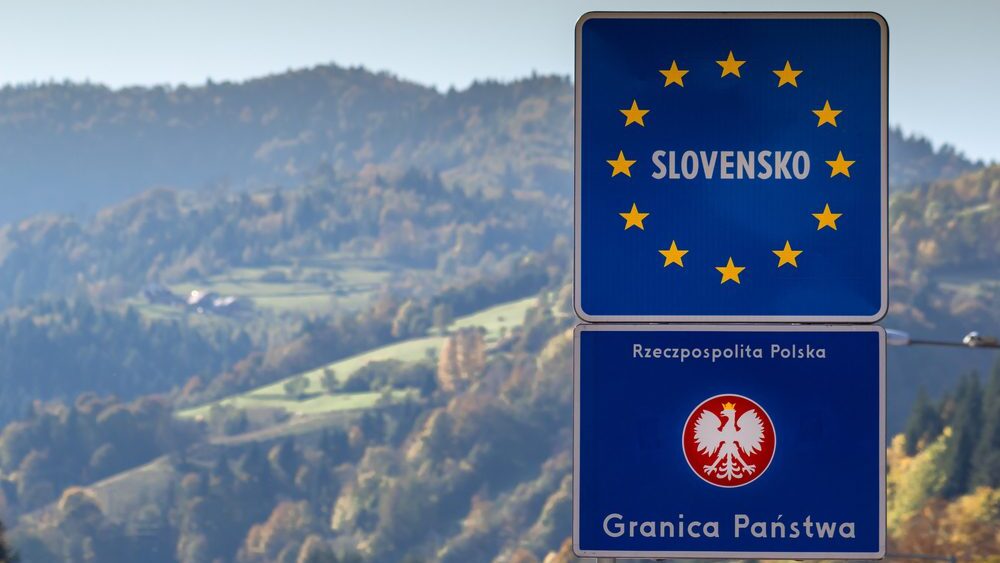
Amid a massive surge of illegal migration flowing into the European continent via its southern, Mediterranean flank, the Polish government has opted to follow the lead of France, Austria, Germany, and Switzerland, announcing on Monday, September 25th, that it would introduce inter-Schengen border controls with its neighbor Slovakia.
While speaking at a rally just weeks ahead of Poland’s parliamentary election, Prime Minister Mateusz Morawiecki, whose conservative party Law & Justice (PiS) is currently polling at 36.8%, told the crowd that he had directed the Minister of the Interior to implement checks on mini buses, vans, cars, and buses at the Slovakian border to stop illegal migrants from entering the country, Dennīk SME reported.
On Tuesday, September 25th, the head of Poland’s Ministry of Interior and Administration Mariusz Kamiński confirmed what the prime minister said the day before, saying in a statement:
The Border Guard has introduced permanent and ad hoc inspections of buses and other vehicles on the Polish-Slovak border that may transport illegal migrants from this direction.
W związku z nasiloną presją migracyjną szlakiem bałkańskim przez Słowację, Straż Graniczna wprowadziła na granicy polsko-słowackiej stałe i doraźne kontrole busów i innych pojazdów mogących przewozić nielegalnych migrantów z tego kierunku.
— Mariusz Kamiński (@Kaminski_M_) September 26, 2023
At the present moment, it is not clear just when exactly these newly announced border checks will come into effect.
Similar measures could potentially be implemented by Warsaw in the future, possibly along its border with Germany, as stated by a spokesperson for the Law & Justice (PiS) party, Polsat News reported. Germany has already announced the introduction of border checks along its border with Poland—a move that representatives from the main police union (GdP) have criticized.
“As the GdP, we speak out against stationary, fixed border controls because we do not see this as effective in police work,” Vice Chairwoman of the GdP Federal Police District, Erika Krause-Schöne, told the Rheinische Post.
The Polish interior minister is set to discuss the issue with his German counterpart Nancy Faeser on the sidelines of the meeting of interior ministers of the European Union this Thursday, September 28th.
The Polish prime minister’s announcement comes as Slovakia grapples with a precipitous uptick in illegal migration. Authorities in the Central European country, so far this year, have apprehended a total of 27,000 illegal migrants, over nine times more than were taken into custody the previous year, according to figures from the interior ministry.
The influx of illegal migrants in and around central Europe mainly stems from massive numbers of new arrivals landing in Greece and Italy. Last month, Greece saw a 235% uptick in illegal migration compared to the same month in 2022. Meanwhile, earlier this month, some 5,000 illegal migrants made landfall in a single day on the Italian island of Lampedusa, which is home to just 6,000 residents.
